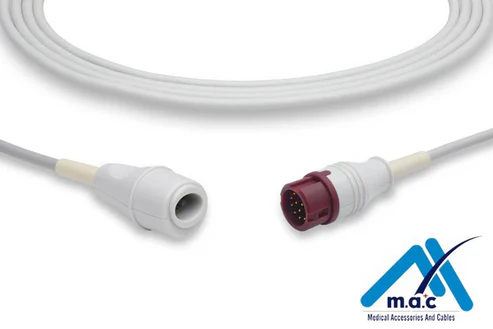In today's interconnected world, the reliability and efficiency of data transmission are paramount. Industry professionals often rely on specialized cables to ensure seamless communication between various devices. One such crucial component is the IBP adapter cable. This guide will delve into the intricacies of IBP adapter cables, their applications, and how to select the most suitable solution for your specific needs.
Understanding IBP Adapter Cables
IBP (Inter-Board Processor) adapter cables serve as a bridge between different boards within a system, facilitating data exchange and control signals. These cables are typically used in industrial automation, data centers, and other environments where high-performance communication is essential.
Key Features and Benefits
- High-Speed Transmission: IBP adapter cables are designed to support high-speed data transfer rates, ensuring efficient communication between devices.
- Reliability and Durability: Constructed with premium materials, these cables are built to withstand harsh conditions and provide long-lasting performance.
- Versatility: IBP adapter cables are compatible with a wide range of devices and systems, offering flexibility in various applications.
- Noise Reduction: Specialized shielding techniques help minimize electromagnetic interference (EMI), ensuring data integrity and preventing signal degradation.
Applications of IBP Adapter Cables
- Industrial Automation: In factories and manufacturing plants, IBP adapter cables connect controllers, sensors, actuators, and other automation components to enable efficient operations.
- Data Centers: Within data centers, these cables facilitate communication between servers, storage devices, and network switches, ensuring optimal data flow.
- Medical Equipment: IBP adapter cables are used in medical devices to connect diagnostic equipment, monitoring systems, and patient data terminals.
- Military and Aerospace: In defense applications, these cables are essential for reliable communication between various systems and components.
Factors to Consider When Choosing IBP Adapter Cables
-
Cable Length: Determine the appropriate cable length based on the physical distance between the devices to be connected. Excessive cable length can introduce signal attenuation and reduce performance.
-
Connector Type: Ensure that the connector types on both ends of the cable are compatible with the devices being connected. Common connector types include DB-9, DB-25, RJ45, and USB.
-
Shielding Type: Consider the level of shielding required based on the electromagnetic environment. Options include foil shielding, braided shielding, or a combination of both.
-
Data Transfer Rate: Select a cable that can support the required data transfer rate for your application. Higher data rates may necessitate cables with specific characteristics, such as thicker conductors or lower capacitance.
-
Environmental Considerations: If the cable will be exposed to harsh conditions, such as extreme temperatures, humidity, or vibration, choose a cable with appropriate environmental ratings.
-
Compatibility: Verify that the IBP adapter cable is compatible with the specific protocols and standards used in your system. This may involve checking compatibility with standards like PCIe, USB, or Ethernet.
Conclusion
IBP adapter cables play a vital role in ensuring reliable and efficient data communication in various industries. By carefully considering the factors discussed in this guide, you can select the most suitable IBP adapter cable for your specific needs. Investing in high-quality IBP adapter cables can contribute to improved system performance, reduced downtime, and overall operational efficiency.
